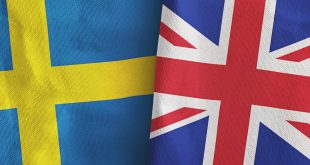Sweden has grabbed international headlines becoming the outlier nation for its social policy in dealing with the Coronavirus pandemic. Industry strategic consultancy Regulus Partners details that it should not pursue the same status for its online gambling policies.
Sweden: online regulation – cutting off one’s nose…
Before Sweden domestically regulated in January 2019, its proposed licensing regime was supposed to generate additional growth for Nordic .com operators and the country was lauded for joining the pantheon of liberally regulated jurisdictions (see WPs passim for the misguided hype and our scepticism).
Little thought was given by these operators to the dramatic changes in competition that would inevitably take place (unleashing the monopolies) and barely a murmur was raised about the distorting effects of various marketing, access and (especially) bonusing rules that were being implemented.
During 2019, the Swedish gambling market shrank precipitately for substantially all exposed erstwhile .com operators and is not recovering for them (profitability has evaporated). Equally, it took less than three months for a political-regulatory backlash to take place against ‘excessive’ marketing and licensing breaches (with 32% of extant licensees sanctioned in some form so far). Sweden’s ‘liberal’ approach to Covid-19 has also attracted ‘undue’ betting interest in its lower league soccer.
It is perhaps unsurprising therefore that the government has signalled its intent to crack down further. This week some of the leaders of the Swedish online sector have warned that Sweden’s approach is leading to a ‘pyrrhic victory’ for the minister responsible for gambling in an open letter.
Sweden’s plans to introduce €460-equivalent weekly deposit limits (and slots loss limits) as well as a €9-equivalent bonus limit (with bonuses already restricted to new depositors) are weak tools, in our view. For a start, they are very blunt: €2,000 pcm is an unsupportable gambling habit to most but a very small sum of money for a few (important customers): it is a policy that has very few ‘real people’ in mind. The RG and affordability checks of the strongest operators are already far more sophisticated than this, but they are not fully mandated across all licensees (although Sweden does have a broad range of required RG measures) and so they do not capture ‘the market’ completely (especially implied from the rate of sanction), nor do they tick the box of the government’s perceived need to ‘doing something’.
Similarly, significantly restricting exotic betting types (also proposed) will do very little to manage match-fixing since the protagonists are very good at avoiding regulatory scrutiny and are rarely domestic – it will simply make it even less visible and therefore even harder to detect and police. There is no doubt that the best regulation in the interests of the consumer, integrity and wider public health is built upon cooperation with a responsible sector and that ‘sledgehammer’ policies may sound good but are typically counterproductive – so far so Pyrrhic (NB, these changes are not yet in force – and that is relevant).
However, the seeds of Sweden’s problems were sowed early, in our view – and mostly by the operators. Many harder gamblers are ‘bonus hunters’ and so a black market of sorts was almost a given when the rules were promulgated – however, this did not fit into the mantra of ‘liberal growth’ hope the sector wanted to buy into and so the regulator could probably be forgiven for not realising how distorting a bonus restriction would be. But there are two more fundamental points on bonusing.
First, bonuses are a key industry driver when the product is homogenous (me-too) and other forms of customer retention are limited – it is telling that the strongest and most differentiated products tend to be the least bonus-driven: a domestically licensed me-too operator is indeed at a disadvantage to an illegal one all other things being equal, especially when that customer is also bombarded with me-too advertising and marketing (gambling advertising actually shrank in Sweden post-regulation, but was still considered by a critical mass of politicians and commentators to be ‘out of control’).
Second is one of counting. The Copenhagen Economics paper that estimates c. 80-85% channelling seems to be arrived at as robustly as any estimate of a ‘dark’ market can be. However, it does seem to be based upon GGR (including bonuses) not NGR (as are the SGA’s own channelling estimates). Given that the bonus mix of the domestically regulated Swedish market is structurally low due to regulation, whereas the bonus mix of the black market is likely to be very high as one of its main reasons for existing, GGR can be somewhat misleading.
On an NGR basis (ex-bonuses, still including tax), we believe the rate of channelling is c. 85-90% – still not perfect but materially greater than billed in terms of underlying customer spend. In absolute terms, this would suggest a black market of c. €100m – a material figure but only 3-4% of SE gambling in all forms: not bad for a jurisdiction with such a strong .com digital heritage, given the inbuilt regulatory impediments and systemic lack of differentiation.
Moreover, the strength of the monopolies and operators with differentiated product (e.g. bet365 – not a signatory) would suggest that the channelling of both mass market and discerning customers is materially higher – the problem sits most clearly in casino, which is by far the most homogenous product and by extension almost certainly among a relatively small number of highly prolific harder gamblers – at the moment.
However, while the bonus restriction is in place for new customers only (size restricted or not), the ‘black market’ is likely to grow as more customers are likely to hunt for bonuses as their domestic supply is exhausted (and in Sweden more active customers have been trained to do this for years).
Moreover, the ‘black market’ can offer pretty much the same product as domestically licensed operators and it is not illegal for Swedish customers to find offshore operators and for those operators to accept Swedish customers (if they are not targeting them) – so it isn’t even really all that black. This combination leads us to believe that the black market is likely to grow by c. 5ppts pa in mix terms: so could be fully 25% of the current SE online market by 2022 (with no change in law or mass-market mix; the latter do not tend to be bonus hunters).
That is to say the Swedish government is facing a sector complaint about channelling based upon data collected before the really swingeing proposed reforms get enacted (reforms that the industry probably needs goodwill and measured evidence rather than public argument to modify), or before the real channelling problems implicit in the model (but not the data) have started.
Further, this is a complaint from licensees that actively endorsed Sweden’s approach to licensing and then rapidly lost control of both profits and the narrative as aggressive marketing continued into a dwindling pool of licensed ‘me too’ revenue and sanctions mounted. The minister may not be listening, as the letter alleges, but against such a backdrop this is perhaps not all that surprising. Swedish regulation is indeed a Pyrrhic victory – but more for struggling commercial operators than a government struggling to regain control – however ineptly.
Cooperation to produce sensible outcomes is the only win-win way out, in our view, and this is rarely achieved by communicating through pugnacious press releases – especially when it is the government which holds all the cards (even if those press releases bemoan the lack of dialogue).
Pyrrhus fought himself to a heroic but pointless standstill against the might of both Rome and Carthage and finally met his end in a street fight – perhaps a rather fitting allegory for a .com gambling sector that still hasn’t fully worked out how to work with governments, for which it continues to pay the price.
Europe: Covid-19 – Swedish operators warn of unintended consequences as pressure grows in Ireland
The major regulatory (and self-regulatory) effect of the Coronavirus to date (in Europe) has been to accelerate the adoption of measures that may have been on the cards anyway. Thus, Spain, Lithuania and Great Britain have followed the Italian example of suspending broadcast advertising; and Belgium and Sweden have adopted the German approach of imposing mandatory deposit or loss limits.
Ireland seems to be under pressure to do both. A number of figures involved in the treatment of gambling disorder wrote to the Irish Times this week, calling for the adoption (by Flutter Entertainment, Boyle Sports and Ladbrokes) of mandatory deposit limits during lockdown. This comes one month on from calls within the Dail for a ban on gambling advertising. It seems a logical assumption that those firms who have committed to end broadcast advertising in Great Britain will follow suit in Ireland; but will mandatory limits follow and how simple will it be to rescind emergency measures once the all-clear has been sounded?
In Sweden, trade association the Branschföreningen för Onlinespel (BOS) has written to the government to ask for a rethink on plans (effective from 1 June) for mandatory deposit limits alongside other potential restrictions (see lead). The trade association has argued that risk of gambling disorder at the level of the population is likely to have decreased in recent weeks; and those blanket restrictions may drive players to unlicensed online operators. These are valid points (even if the industry at large has had a tendency to overplay the black-market card and thus diminish its impact) but it feels as though operators are losing the argument in a growing number of jurisdictions.
In Portugal, no news was good news this week. Having granted itself powers to suspend online gaming (but not sports betting), the Lisbon government took no further action this week, leaving Latvia as the sole proponent of Covid-based prohibition (or ‘covition’).
___________________










